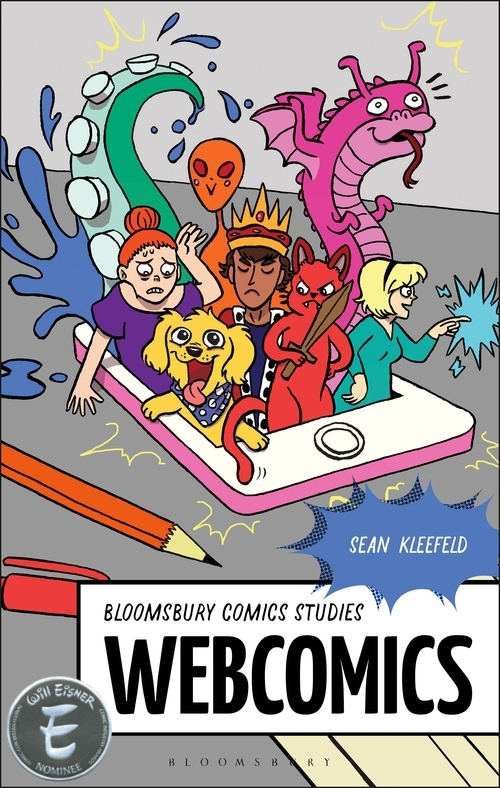 It's Black History Month here in the U.S. so I thought I'd start with a quick highlight of Jackie Ormes. Ormes was a newspaper cartoonist from the late 1930s until the early 1950s, and has been cited the first female African American cartoonist. She actually became more widely known for her Patty-Jo dolls, but those were a direct outgrowth of ger Patty-Jo 'n' Ginger comic, which ran from 1945 to 1956. I believe it was the popularity of her dolls that led to her making an appearance on Kukla, Fran and Ollie. (I can't confirm that, however; I have yet to be able to find that particular episode. Can anyone here provide an air date, or direct me to a copy?)
It's Black History Month here in the U.S. so I thought I'd start with a quick highlight of Jackie Ormes. Ormes was a newspaper cartoonist from the late 1930s until the early 1950s, and has been cited the first female African American cartoonist. She actually became more widely known for her Patty-Jo dolls, but those were a direct outgrowth of ger Patty-Jo 'n' Ginger comic, which ran from 1945 to 1956. I believe it was the popularity of her dolls that led to her making an appearance on Kukla, Fran and Ollie. (I can't confirm that, however; I have yet to be able to find that particular episode. Can anyone here provide an air date, or direct me to a copy?)More than just being a comic creator, though, Ormes was active in the civil rights community. She wasn't an activist in the same sense that Martin Luther King, Jr. was or, for that matter, anyone whose names typically show up in civil rights histories. But through her comics, she always provided strong, black female protagonists and frequently depicted social injustices in her storylines. Often in complex ways. Some of her later
 Torchy in Heartbeats comics tackled how environmental issues often had a disproportionate impact on lower classes and how the lower classes were disproportionally black. It should come as little surprise, then, that her work was largely ignored or dismissed by the William Randolph Hearsts of the industry, and left almost exclusively to smaller, African American newspapers.
Torchy in Heartbeats comics tackled how environmental issues often had a disproportionate impact on lower classes and how the lower classes were disproportionally black. It should come as little surprise, then, that her work was largely ignored or dismissed by the William Randolph Hearsts of the industry, and left almost exclusively to smaller, African American newspapers.Nancy Goldstein's 2008 biography of Ormes is well worth a read. I could quibble a bit with some of the art (not Ormes' work; some of the scanning seems to be at far too low a resolution) and it's not organized how I would ideally like to see it, but it's a very solid piece of work and does a good job representing a largely ignored, but incredibly talented, comic creator.
I'm pretty sure Ormes wasn't out to change the world with her comics. She seemed to just do her thing, and people appreciated it. She just had things she wanted to say and used her comics as an outlet for them. She didn't care what conventional wisdom said -- that black comic characters had to fit to a specific stereotype or were only saleable to a minority of the population -- but she went out and just did what she thought was right. If she was a leader, it was largely by example. I have a huge amount of respect for that.






0 comments:
Post a Comment